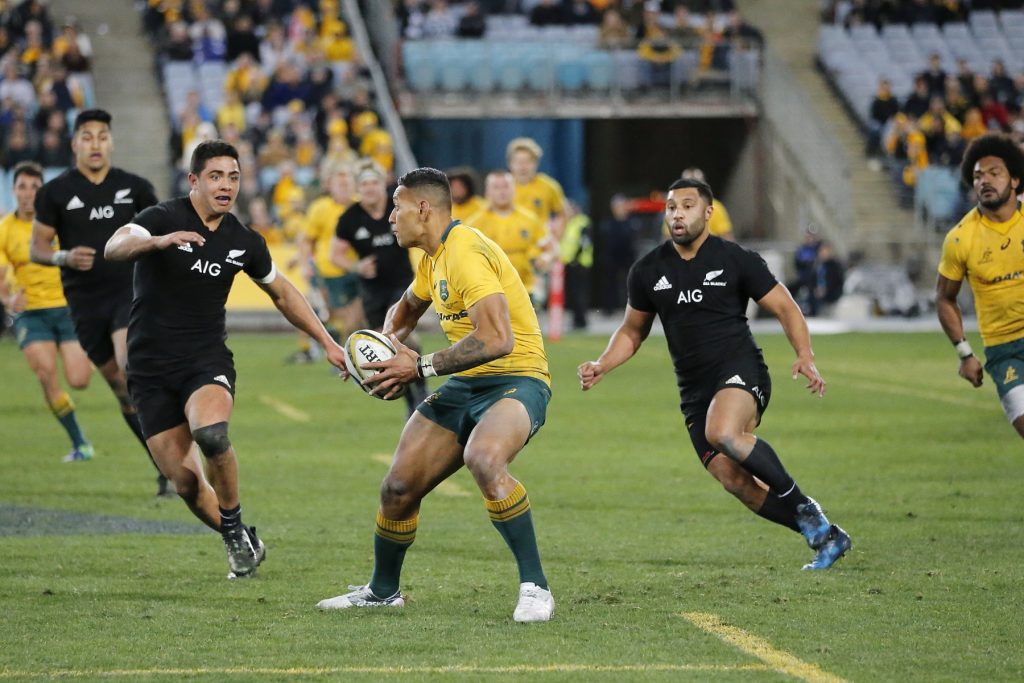So, the Folau/Rugby Australia dispute has ended not with a bang, but with a whimper. Many commentators are dissatisfied because it seems unresolved, a stalemate with no true winner.
Not me. I’m happy because for me there are far more important things here than winning and losing the hot issues.
Never having spoken with him, I’m reluctant to comment on the sophistication of Israel Folau’s Christian theology. But any individual’s religious beliefs are complex and dynamic. They are continually emerging, and especially so in the case of newish believer like Folau. In any case, they are not the sort of thing to be quickly ‘passed’ or ‘failed’ on the basis of a few soundbites and so I’m happily agnostic about Israel’s divine standing.
The lack of a public legal determination of the rights and wrongs here doesn’t bother me either. Mostly this is because, like nearly all of us, I’ve next to no relevant legal acumen. I’ve no way of judging the call either way. So again, I’m happy to let it ride.

Similarly, as an AFL man, I don’t have a dog in the fight over rugby money.
You might expect that as a supposedly ‘expert Public Christian’ (whatever that is!) at the Centre for Public Christianity, I’d have skin in the religious freedom legislation game. If I do, then I don’t know where it lies. I would struggle mightily to articulate what a wise government policy on religious freedom might look like and I am at a loss as to whether the Folau settlement has helped or hindered its development.
Despite there being no obvious winners or losers in these matters (important as they are) I’m happy with the resolution for one simple reason: both parties said ‘sorry’ to each other.
For me, the public resolution statement peaked with this:
While it was not Rugby Australia’s intention, Rugby Australia acknowledges and apologises for any hurt or harm caused to the Folaus. Similarly, Mr Folau did not intend to hurt or harm the game of rugby and acknowledges and apologises for any hurt or harm caused.
I love this.
I love it because apologising is way more difficult, but way more important, than winning or losing — legally, politically, financially or theologically.
Posting doctrine – Christian, woke, or otherwise – takes little effort or imagination. Anyone with deep enough pockets can hire a lawyer to fight their battles for them at legal arm’s length. Moreover, self-righteous posturing comes all too easily to most of us. God knows there’s been more than enough cheap grandstanding from the sidelines of this sorry saga (I get the irony that this piece might add to it!) It’s relatively easy, too, to pass objective laws as pieces of legislation on paper.
But apologies are different. They are personally difficult and costly. They require honesty, self-reflection and humility on the inside; and they demand contrition, sacrifice and deference on the outside. Critically, they are the basis for real resolution and reconciliation: it’s what friends do, not enemies.
Saying sorry is at the pinnacle of Christian morality.
Now I have no idea, of course, which factors brought Folau and the ARU to this watershed moment. Perhaps, like two little kids forced to shake hands after a footy dust-up, they were legally bound to do so. Perhaps they did so through gritted teeth. Whatever the case, that’s OK with me. Even a reluctant apology opens possibilities for sorting things out relationally.
What I do know is this: saying sorry is at the pinnacle of Christian morality. In fact, it’s way stronger than that: Christianity is fundamentally, essentially, unavoidably centred on apologizing. To risk throwing yet another contextless Bible proof-text into the fray, Psalm 51 reminds believers that proper religion starts not with ritual but with contrition:
The sacrifices of God are a broken spirit; a broken and contrite heart, O God, you will not despise. (Psalm 51:17)
Indeed, at its heart proper Christian faith rests not on correct doctrine or moral excellence but rather on three cries to God: ‘please!’, ‘sorry’ and ‘thank you!’. Please bless us with your loving presence; sorry that we are so often not worthy of it; but thank you for loving us anyway.
I’m guessing that, of these words, sorry is the most difficult for all of us, and in all of our relationships, divine or otherwise. My further hunch is that it is also the most important of the three since it opens the door to building bridges that span disputes.
If I am right about all this, then a heartfelt, reconciliation-aimed apology from Folau is the most profoundly Christian act we’ve publicly witnessed from him (and the ARU) yet, as well as the one offering the most hope for restoration. As a lover of both God and football I am satisfied.
Richard Shumack is a Research Fellow with the Centre for Public Christianity, specialising in philosophy of religion. He is the author of The Wisdom of Islam and the Foolishness of Christianity.
This article first appeared in The Spectator.


